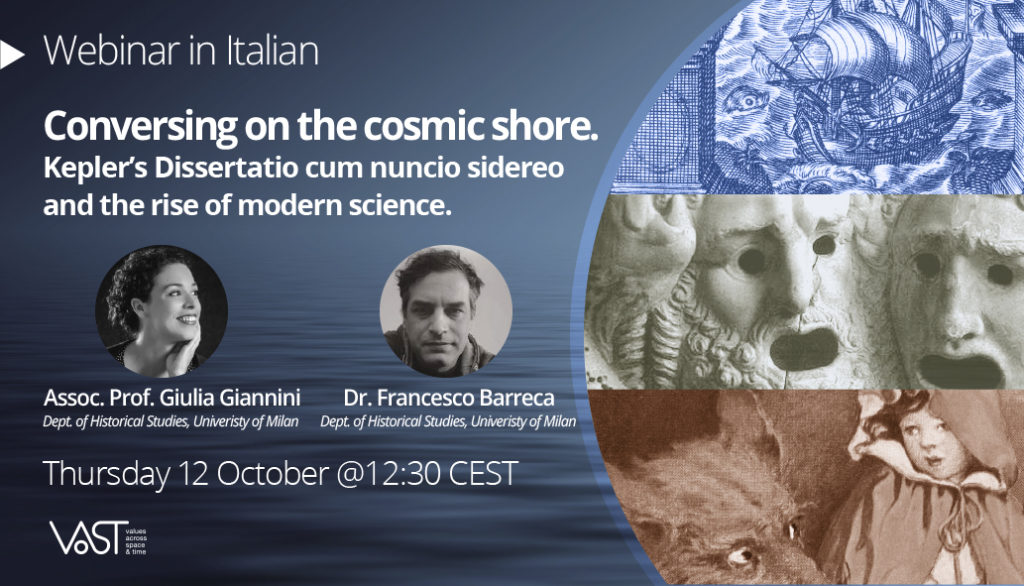Conversing on Cosmic Shore. Kepler’s Dissertatio cum nuncio sidereo and the rise of modern science (in Italian)
The video from the webinar is available to watch here.

Webinar info: When Galileo published the Sidereus Nuncius in March 1610, what he claimed to have discovered with an improved telescope seemed too incredible to be true. Mountains on the Moon. New planets orbiting around Jupiter. A plethora of stars never before seen. All these were things so surprising, bizarre, unheard of, and unlooked for that they were hard to believe. Could Galileo be trusted? After all, he was a relatively unknown professor of Mathematics at the University of Padua with a limited publication record. In 1611, Jesuit Cardinal Roberto Bellarmino, consultor to the Holy Office, asked famed astronomer Christoph Clavius and his colleagues at the Collegio Romano. They answered in the affirmative: Galileo had been at the Collegio with his telescope, and the Jesuit astronomers had seen with their own eyes what he saw. Johannes Kepler, court astronomer to Emperor Rudolf II, who was also asked for an opinion, did not wait to get his hands on one of Galileo’s telescopes. As soon as he was done reading the Sidereus Nuncius, he sat down at his desk and wrote a lengthy open letter to Galileowhich was published in Prague in early May 1610 with the title Dissertatio cum nuncio sidereo.
The Dissertatio can be considered one of the earliest examples of scientific essay review. Refraining from the traditional models of reviewing literary works – the adversus, the apologia, the commentarius – Kepler sets out to start a “conversation” with Galileo’s Sidereus Nuncius, pointing out squarely its merits but also, when appropriate, its failings. In doing so, he touches upon some of the key features of the rising new science: the dismissal of the authority principle; the nature of operative and instrumental knowledge; the relationships between speculation and experimentation; the need for dialogue, cooperation, and a new attitude towards the past; the redefinition of the role and status of concepts such as evidence, objectivity, demonstrability, and truth itself. All these themes, which were implicit in Galileo’s Sidereus Nuncius, are brought to the foreground and discussed in Kepler’s Dissertatio, making the latter work an invaluable resource to understand how modern science was born, the problems it faced, and the issues it posed.
